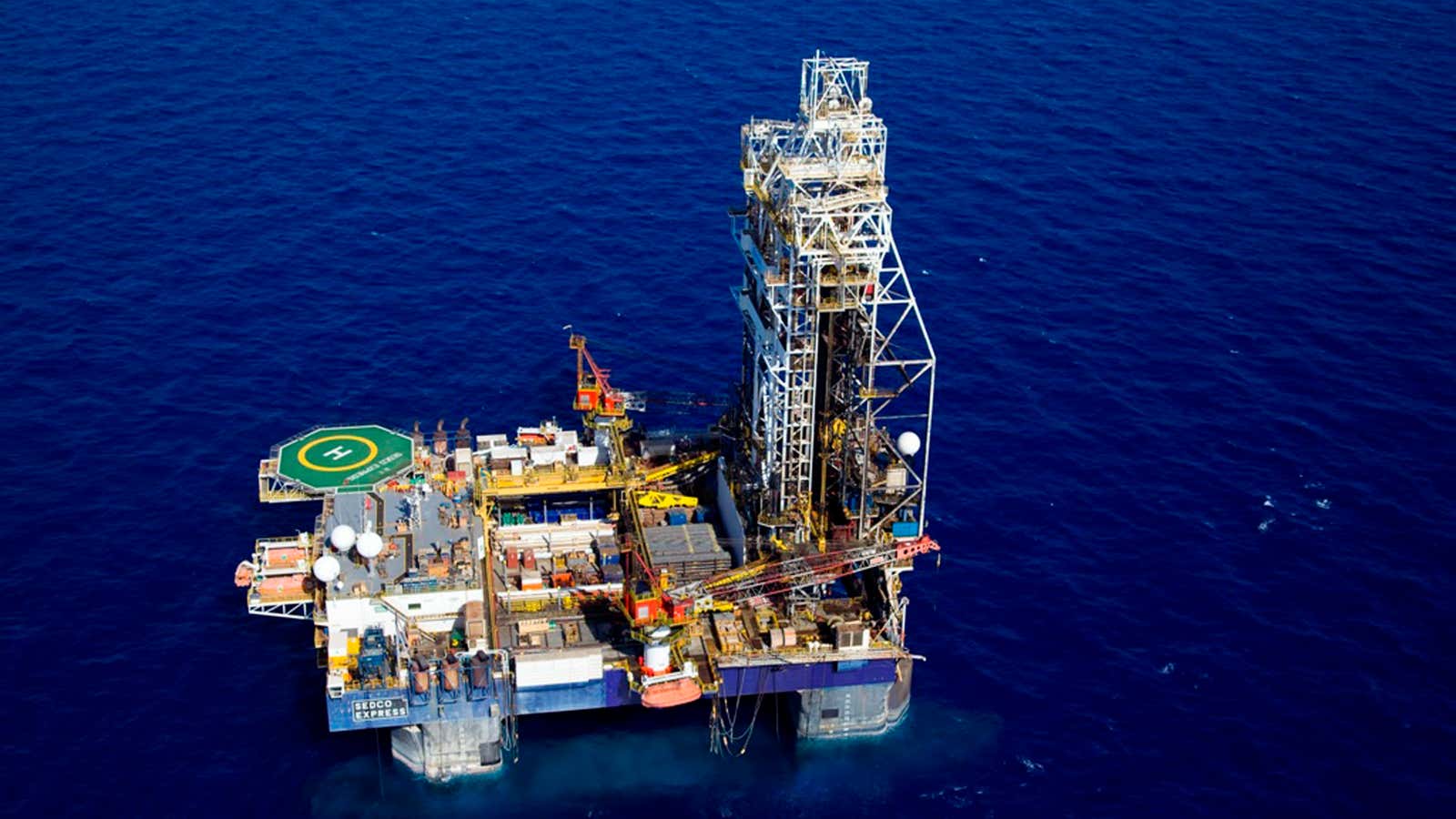ISTANBUL— Around the world—in North and South America, in East and West Africa, in Israel (the Tamar gasfield, pictured above), as well as Kurdistan and Russia—a fresh oil and natural gas boom is under way. There is so much new supply coming onto the market in the coming decade that it seems no one has bothered to tally all of it up.
But these new hydrocarbon patches share a problem: How to get their oil and gas to market.
In the US, the problem is politics over the Keystone XL Pipeline from Canada’s Alberta oil sands to the US Gulf of Mexico coast. In Mozambique, doubt has been cast on the economics of completely building out expensive liquefied natural gas facilities for export to Asia. In South Sudan, it is persistent trouble with Sudan proper, and obstacles to building a new line to Kenya.
Then there is the eastern Mediterranean, where no one knows how huge volumes of gas owned by Cyprus and Israel will overcome local antagonisms (Cyprus with Turkey, and Israel with its neighbors) so that an economical pipeline can be built. “If they could get over their blood feud, that would help,” Hugh Pope of the International Crisis Group said of Cyprus’s problems with Turkey. “But there is no sign of a solution. It is stuck.”
The conundrum is particularly stark in Kurdistan. In terms of unexplored oil and gas fields, this province of northern Iraq is more accessible to foreign drillers than any other region in the world, writes Bernstein’s Oswald Clint in a Nov. 19 note to clients. Unlike in Iran, Russia and Saudi Arabia, he says, foreign companies “can genuinely gain access to billion-barrel exploration potential” absent any state role. And the profit is right–with oil at $90 a barrel, you can earn $7-$11 on each one, compared with the meager dollar paid by Baghdad. “The fiscal terms are not phenomenal,” Clint writes, “but they are better than other major hydrocarbon provinces.”
However, Baghdad controls the only major export route out of the region—the Kirkuk-Ceyhan oil pipeline to the Turkish Mediterranean. Hostility between Baghdad and the Kurds has prevented a clear transportation agreement between them. The official problem is how to share the proceeds of Kurdistan’s hydrocarbons, but even when they have seemed to agree on that, either the oil has not flowed, or the payments have not been made.
Agile companies such as Genel Energy, headed by BP’s former boss, Tony Hayward, are finding other ways out. Genel is using up to 500 trucks a day to ship 75,000 barrels a day of crude from its Taq Taq field north to Turkey, to be picked up by oil traders. Hayward is counting on cutting the costs and raising production by getting a 1-million-barrel-a-day independent pipeline through Turkey by 2014. But a pipeline is risky, since technically speaking Baghdad is in charge of the borders. At an Atlantic Council conference Nov. 15 in Istanbul, Hayward said he will manage the hurdles. “But we won’t speculate about the politics that will allow that to happen,” he added.
Ashti Hawrami, Kurdistan’s showy oil minister, told the Istanbul conference at length that the oil will flow—it is just a matter of time. But that did not satisfy James Jeffrey, the former US ambassador to Iraq, who reminded the group that the US has repeatedly committed its military to engagements in the region when the oil flow was threatened. Hayward and Hawrami “both said that if you build the oil industry, the politics will come,” Jeffrey said. But they need to make it clear to the US how precisely that will happen so that “it knows that it won’t end up being asked later to bail out” the region.
Hayward smirked. When there has been trouble with the oil, it has consistently been Baghdad at fault, he said. “But I have tremendous confidence that the oil will get to market,” he said. “I feel the same about the gas.
